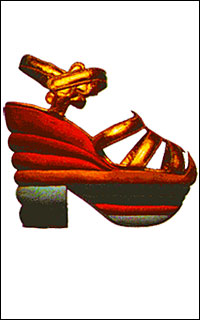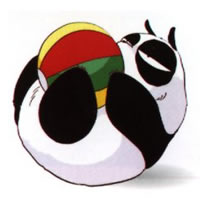| Pages in topic: < [1 2 3] | Any tips on note taking when consecutive interpreting? Thread poster: Ann Bishop (X)
|
|---|
Gordana Podvezanec 
Croatia
Local time: 07:59
Member (2003)
German to Croatian
+ ...
SITE LOCALIZER | i hope these websites may be of help to you: | Mar 27, 2008 |
| | | | Jonathan Sanders (X) 
Local time: 07:59
[Edited at 2008-03-28 08:58]
| | | | | Memory first | Mar 28, 2008 |
When I was training to be an interpreter, I was taught that reliance on notes can lead to relay interpreting - ie you end up interpreting what you have written down, rather than the message you have just heard. However I always jot down names and numbers, as they are much harder to retain in your short-term memory while speaking. And if a passage is particularly long, I make a note of the main points of the message to help me recall it.
| | | | Shiroguma
Peru
Local time: 00:59
English to Spanish
+ ...
| The best method is your method | Mar 29, 2008 |
There is no best method to jot down what you just heard and interpret the message accurately - the best method is the one you create on your own. On my opinion, it simply depends on what kind of assignment you are getting.
Test around how you feel most comfortable with. Some colleagues like drawing rather than writing. Myself I prefer typing whenever a computer/laptop is available (my mind just works faster if interpreting/typing verbatim ... See more ... See more There is no best method to jot down what you just heard and interpret the message accurately - the best method is the one you create on your own. On my opinion, it simply depends on what kind of assignment you are getting.
Test around how you feel most comfortable with. Some colleagues like drawing rather than writing. Myself I prefer typing whenever a computer/laptop is available (my mind just works faster if interpreting/typing verbatim ), but some colleagues will go mad if typing while interpreting. I prefer to use notebook or sketch books and draw if I have to interpret a scene in detail (legal, insurance). ), but some colleagues will go mad if typing while interpreting. I prefer to use notebook or sketch books and draw if I have to interpret a scene in detail (legal, insurance).
Shorthand, full words, typing, drawing, memory... There's no best method, different people have different brains - and not all brains work the same. Just find one, stick to it - but always remember not to "forget" things. It's all about trial and error. Best of Luck! ▲ Collapse
| | |
|
|
|
| I agree with Shiroguma | Mar 31, 2008 |
I might have re-invented the wheel, but, as I mostly interpret for the depositions, I use the system that I created myself. It's a combination of letters, numbers, symbols and arrows. Sometimes I draw a picture of a person (very helpful when they are talking about what body parts were injured). When anybody else looks at my notebook, it seems like rubbish to them, but it makes all the sense in the world for me.
| | | | | so... How then is it possible to take notes while maintaining eye contact? | May 5, 2008 |
I also think it is important to take notes during consecutive interpreting, however, I find that when you do, you loose eye contact with the speakers as you jot down your main ideas, and then look down to refer back to your notes.
It is kind of ackward specially in legal settings like depositions.
What do you guys think?
| | | | Wreybies
Local time: 01:59
English to Spanish
| Must agree with Shiroguma | May 19, 2008 |
I am going to also chime my agreement with Shiroguma. I have worked as a military translator in the USAF (Russian,) and I currently work as an English ~ Spanish interpreter (consecutive.) I have my own system of symbols, letters, contractions, arrows, and combinations of the aforementioned which I use to take notes. I am NOT a stenographer, and I make no attempt to get every word, but the memory does need landmarks to guide it when reproducing the information.
Have a look at what... See more I am going to also chime my agreement with Shiroguma. I have worked as a military translator in the USAF (Russian,) and I currently work as an English ~ Spanish interpreter (consecutive.) I have my own system of symbols, letters, contractions, arrows, and combinations of the aforementioned which I use to take notes. I am NOT a stenographer, and I make no attempt to get every word, but the memory does need landmarks to guide it when reproducing the information.
Have a look at what's out there as far as systems and methods. This thread is five years old, and I am sure that there are many links and examples given herein that claim to be the be-all and end-all of methods. Have a look at them; check them out. Take from them what makes sense to YOU, what works with YOUR brain.
For me, symbols are the key. I do use actual letters, but only sparingly. I like to have glyphs that relate to a concept instead of letters that relate to the spelling of a given word in a given language. My brain makes a faster transition when I am NOT looking at letters that may have no relation to a given word when I go from language X to language Y.
This is the system that works for ME. I have had other interpreters look at my method and tell me they would be fired within nothing flat if they tried doing what I do. When I look at how they take notes, I say the same thing.
Do what works for YOU!!! If you find that using polychromatic swisty-ties somehow makes the process work for you, don't let anyone tell you that you are crazy, go with it! ▲ Collapse
| | | | DanielChen 
China
Local time: 13:59
English to Chinese
+ ...
| To Take Notes in a Right Way | Jun 8, 2008 |
I think notetaking is absolutely necessary. But when you really take notes in interpreting, you tend to try to write down everything, especially for those first time practioners. Why not just write those main topics as a reminder of your memeory. I think to listen attentively is of first importance.
Good Luck!
| | |
|
|
|
Aymeric de Poyen Bellisle (X) 
Switzerland
Local time: 06:59
English to French
+ ...
| The more you write... | Oct 4, 2008 |
... the less you listen (and analyse). It's as simple as that. So the only way to master consecutive is to strike the right balance between note-taking and listening (ie analysing and understanding).
| | | | Agnieszka Hayward (X)
Poland
Local time: 07:59
German to Polish
+ ...
Nathalie M. Girard, ALHC wrote:
Consecutive interpreting is considered the \"true art of interpreting\",
because only a select few are really up to that job (in fact, simultaneous
is easier than consecutive).
Nathalie, thanks for this!
Thought I was in minority.
Regards,
Agnieszka, simultaneous
| | | | | I absolutely agree with Nathalie regarding note taking in consecutive | May 22, 2010 |
Hi folks and Marijke
Anybody claiming there was no need to take notes in CI, either doesn't have any experience at all in this field or thinks interpreting was a "sentence-by-sentence-thing.
I have done it a couple of times with no systematic note-taking and realized how tough it is. You need extensive and systematic training to do it well.
The most important aspect is, IMMEDIATELY discarding from the wording of the spoken sentence... it is not the words you int... See more Hi folks and Marijke
Anybody claiming there was no need to take notes in CI, either doesn't have any experience at all in this field or thinks interpreting was a "sentence-by-sentence-thing.
I have done it a couple of times with no systematic note-taking and realized how tough it is. You need extensive and systematic training to do it well.
The most important aspect is, IMMEDIATELY discarding from the wording of the spoken sentence... it is not the words you interpret but THE IDEAS behind them.
There is no way of jotting down all words in a sentence.
you jot down the main idea, figures, names and places.... using mostly individual symbols... the rest is a matter of memory capacity and training..
Nathalie, I agree, Consecutive is THE art of Interpreting.
Ergie ▲ Collapse
| | | | | lose not loose | May 18, 2013 |
Adriana Johnston wrote:
I also think it is important to take notes during consecutive interpreting, however, I find that when you do, you loose eye contact with the speakers as you jot down your main ideas, and then look down to refer back to your notes.
It is kind of ackward specially in legal settings like depositions.
What do you guys think? Lose not loose (sorry)
| | | | | Pages in topic: < [1 2 3] | To report site rules violations or get help, contact a site moderator: You can also contact site staff by submitting a support request » Any tips on note taking when consecutive interpreting? | Trados Business Manager Lite | Create customer quotes and invoices from within Trados Studio
Trados Business Manager Lite helps to simplify and speed up some of the daily tasks, such as invoicing and reporting, associated with running your freelance translation business.
More info » |
| | CafeTran Espresso | You've never met a CAT tool this clever!
Translate faster & easier, using a sophisticated CAT tool built by a translator / developer.
Accept jobs from clients who use Trados, MemoQ, Wordfast & major CAT tools.
Download and start using CafeTran Espresso -- for free
Buy now! » |
|
| | | | X Sign in to your ProZ.com account... | | | | | |






 ...
... 



